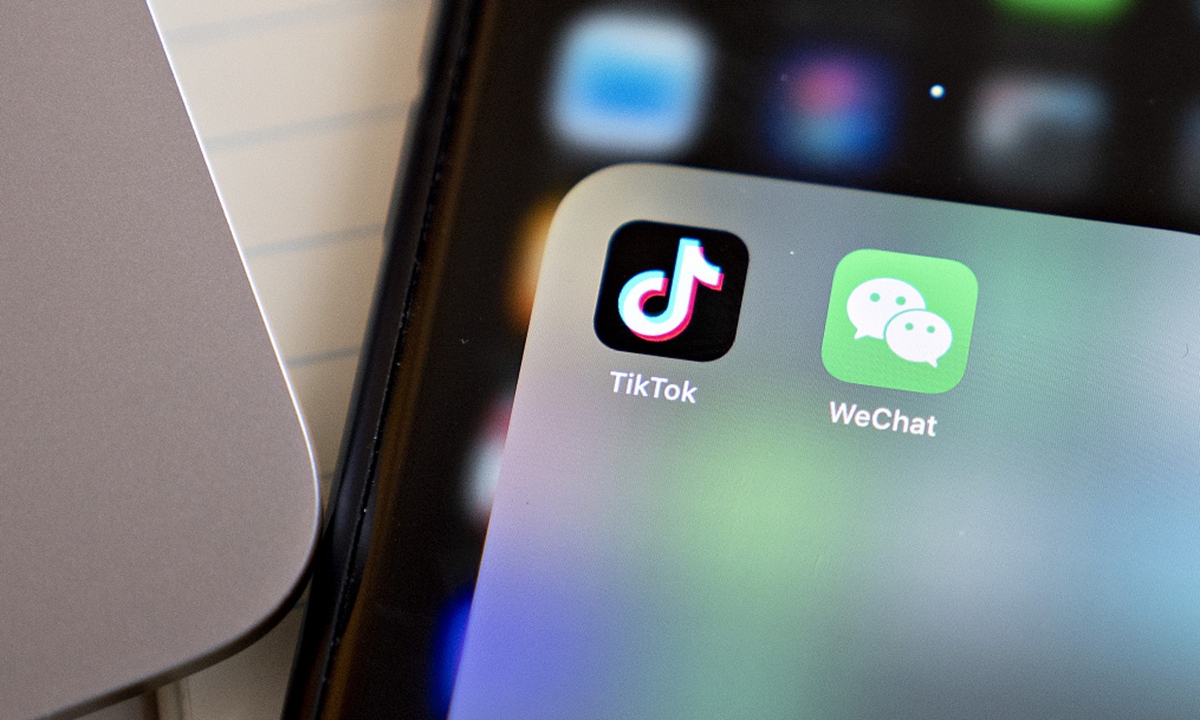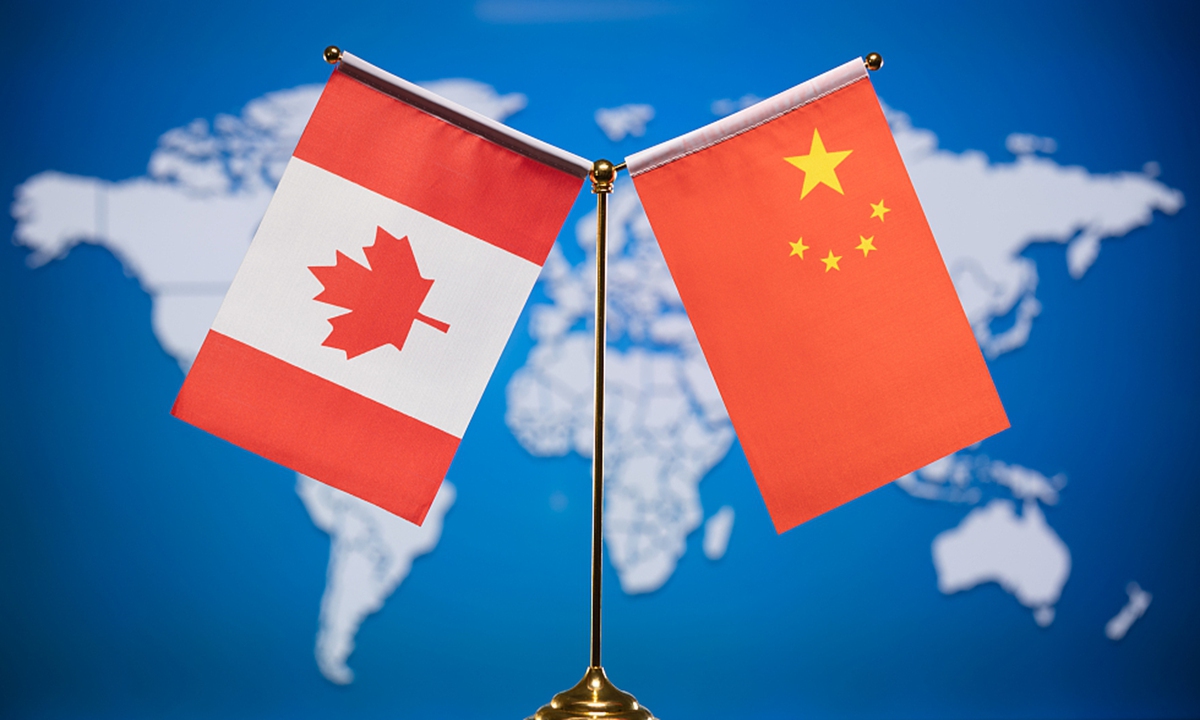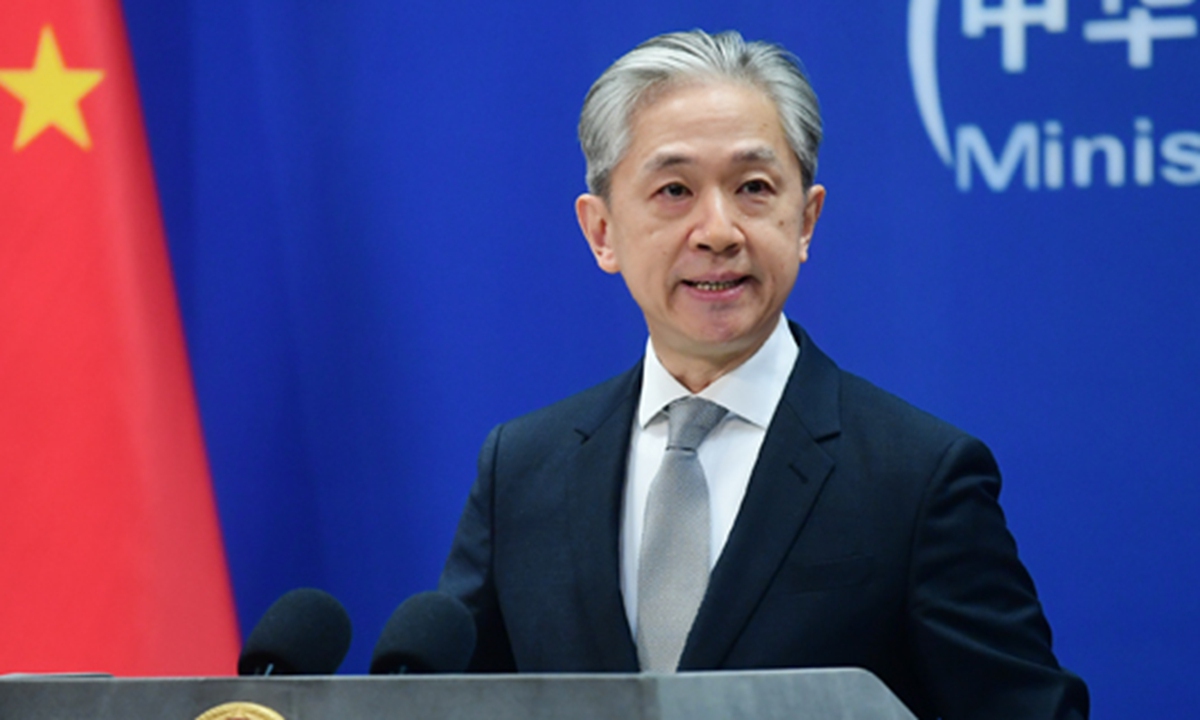
WeChat TikTok Photo:VCG
Canada's ban on China's popular instant messaging app WeChat on government-issued mobile devices is typical bullying behavior that over-generalizes the concept of national security, abuses state power and unreasonably suppresses foreign companies, which will undermine market confidence and deal a blow to Canada's economy.As reported by local media outlets on Monday, Canada is banning the use of WeChat on all government-issued mobile devices, citing the need to keep "government information and networks secure."
In recent years, Chinese-developed apps have been repeatedly put under a magnifying glass in the name of Western governments' security reviews, but there is still no public evidence to prove that those apps could pose a national security threat. Obviously, "data security" is just an excuse to suppress Chinese internet companies. It explains why Canada did not provide conclusive evidence that WeChat "threatens" government information.
Chinese app developers are leading the world in terms of downloads and revenue, and have become a vibrant community of innovators. In the area of mobile internet, Chinese-developed apps like TikTok and WeChat have become a highlight.
Through Apple's app store, Chinese apps have entered the global stage, where many have become international successes. If Canada tries to close its door on Chinese apps, it means it is isolating itself from the world's most dynamic internet innovation, which will undoubtedly deal a blow to Canada's economy and digital innovation.
Digital technology is changing economies and societies - the way we access information, work and connect with each other. Canada should understand that the rapid development of digital industries, including internet sectors, is driven by a market that sees intense competition, which forces enterprises to continuously upgrade technology, reduce costs and improve competitiveness. Canada should not drop out of the digital race.
Currently, it is not the worst-case scenario as Canada's ban on WeChat is limited to government-issued mobile devices, but it sends a dangerous political signal, reflecting Ottawa's political stance toward Chinese apps. It means the Canadian government is allowed to impose bans against Chinese companies under the pretext of the so-called data security without any real evidence. This will undermine Chinese investors' confidence in the Canadian market.
WeChat may get less attention because it is not used as much as TikTok by government employees in North America. However, what should not be overlooked is that the instant messaging app is ubiquitous in China and within Chinese diaspora communities. A ban on WeChat may cause a psychological shock to Chinese people, undermining their confidence in the Canadian business environment. It is probably difficult to understand for some Western politicians who do not frequently use this instant messaging app.
Some Canadian politicians claim that WeChat poses a "threat" to data security. They support banning WeChat on government-issued mobile devices because they may believe such a ban will have a limited impact. However, if business confidence is undermined, it will pose a real threat to the Canadian economy. That's what people should pay deserved attention to.
After Huawei's Meng Wanzhou returned to China, the confidence of Chinese companies in the Canadian market has recovered. If Ottawa does not cherish this and continues to undermine market confidence, it will cast a shadow on China-Canada economic cooperation. Hopefully, the Canadian side can stop its groundless suppression of Chinese companies, and treat Chinese companies in a fair, just and nondiscriminatory manner.
As reported by Bloomberg, trade between China and Canada hit record levels in 2022, with Canadian official data showing that imports broke the $100 billion mark for the first time. The report said in February that businesses are looking beyond political tensions, as demand ramps up and established supply chains reassert themselves in a post-pandemic world.
If Ottawa's geopolitical game, which is aimed at buttering up the US government, breaks this trend, it would be a great pity. Canada's efforts to generalize the concept of national security and to please Washington won't help the Canadian economy, and instead will be an impediment to the healthy development of its digital economy.



